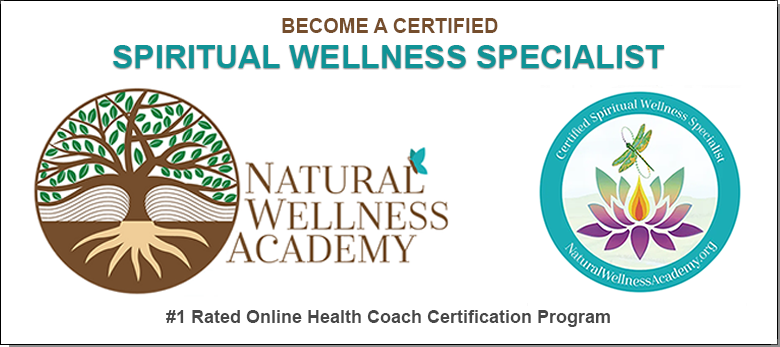
Meditation is a powerful tool for enhancing spiritual wellness, offering numerous benefits for the mind, body, and soul. As a spiritual wellness coach, guiding clients through effective meditation practices is a key aspect of your role. Here we explore various meditation techniques that can help you support your clients on their journey to greater inner peace and spiritual growth.
Contents
Introduction to Meditation and Spiritual Wellness
Meditation is a powerful practice that plays a crucial role in spiritual wellness, offering numerous benefits for the mind, body, and spirit. For spiritual wellness coaches, understanding and mastering various meditation techniques is essential to effectively guide clients toward greater inner peace and personal growth.
Definition And Importance Of Meditation In Spiritual Wellness
Meditation, a practice with roots in ancient traditions, involves focusing the mind to achieve a state of deep relaxation and heightened awareness. It is a cornerstone of spiritual wellness, helping individuals connect with their inner selves and cultivate a sense of calm and clarity. Regular meditation can reduce stress, improve emotional health, and enhance overall well-being, making it an indispensable tool for those seeking spiritual growth.
Role Of Spiritual Wellness Coaches In Guiding Meditation Practices
As a spiritual wellness coach, you play a pivotal role in introducing and guiding clients through meditation practices. Your expertise helps clients navigate the diverse techniques and find the methods that resonate most with them. By providing support, encouragement, and personalized guidance, you enable your clients to incorporate meditation into their daily lives, fostering lasting positive changes.
Understanding Meditation
To effectively guide clients through meditation practices, it is important to have a deep understanding of the practice itself.
Historical Background And Cultural Significance
Meditation has a rich history, dating back thousands of years. It originated in ancient civilizations, with early practices found in Hinduism, Buddhism, and Taoism. These traditions have used meditation to achieve spiritual enlightenment, inner peace, and a deeper connection to the universe. Over time, meditation spread to various cultures around the world, each adopting and adapting the practice to fit their unique spiritual beliefs and needs. Today, meditation is a global phenomenon, appreciated for its profound impact on mental and emotional well-being.
Scientific Benefits Of Meditation
Meditation is not only a spiritual practice but also a scientifically validated method for improving overall health. Numerous studies have demonstrated its positive effects on the mind and body, highlighting the importance of integrating meditation into daily life.
Physical Health Benefits
Regular meditation can lead to significant physical health improvements. It has been shown to reduce blood pressure, enhance immune function, and alleviate symptoms of chronic pain. By promoting relaxation and reducing stress, meditation supports cardiovascular health and helps maintain a balanced and healthy body.
Mental Health Benefits
Meditation is a powerful tool for enhancing mental health. It can reduce symptoms of anxiety, depression, and PTSD by promoting a state of calm and clarity. Meditation also improves cognitive functions such as attention, memory, and problem-solving skills, making it a valuable practice for maintaining mental sharpness and resilience.
Emotional Health Benefits
Emotionally, meditation fosters greater self-awareness and emotional regulation. It helps individuals manage their emotions more effectively, leading to increased emotional stability and a more positive outlook on life. By cultivating mindfulness, meditation encourages a compassionate and non-judgmental attitude towards oneself and others, enhancing emotional well-being and interpersonal relationships.
Different Types Of Meditation Practices
There are various types of meditation practices, each with its unique approach and benefits. Understanding these different methods allows spiritual wellness coaches to offer a diverse range of techniques to their clients, ensuring they find the most suitable practice for their individual needs.
Mindfulness Meditation
Mindfulness meditation involves focusing on the present moment, observing thoughts and sensations without judgment. This practice helps individuals develop a heightened awareness of their inner and outer experiences, promoting a sense of calm and clarity [1].
Guided Meditation
Guided meditation uses audio or verbal instructions to lead individuals through a meditation session. This method is particularly helpful for beginners, providing structure and guidance to facilitate the meditation process.
Breath Awareness Meditation
Breath awareness meditation centers on focusing attention on the breath. This simple yet powerful technique helps anchor the mind, promoting relaxation and concentration. By paying close attention to the natural rhythm of breathing, individuals can achieve a deeper state of mindfulness and tranquility.

Preparing for Meditation
Effective meditation requires proper preparation to create an environment conducive to relaxation and focus.
Creating A Sacred Space
The environment in which meditation is practiced plays a significant role in its effectiveness. Creating a sacred space can enhance the meditation experience by providing a tranquil and inspiring setting.
Importance Of Environment
A dedicated meditation space helps to signal to the mind and body that it is time to relax and focus. This space should be quiet, free from distractions, and conducive to peaceful contemplation. A well-prepared environment can enhance the meditative experience and make it easier to achieve a state of deep relaxation and mindfulness.
Tips For Setting Up A Meditation Space
When setting up a meditation space, consider factors such as lighting, sound, and comfort. Soft lighting, natural elements like plants or crystals, and calming scents from essential oils or incense can create a serene atmosphere. Ensure the space is comfortable, with supportive seating and minimal distractions, to facilitate a focused meditation practice.
Grounding And Centering Techniques
Before beginning meditation, grounding and centering techniques can help individuals prepare mentally and physically. These practices establish a sense of stability and focus, laying the foundation for a successful meditation session [2].
Breathing Exercises
Breathing exercises are simple yet effective methods for grounding and centering. Techniques such as deep breathing, alternate nostril breathing, or diaphragmatic breathing can calm the nervous system and focus the mind. These exercises help to clear mental clutter and prepare the individual for deeper meditation.
Visualization Methods
Visualization techniques involve imagining calming and centering images or scenarios. Visualizing roots growing from the body into the earth or envisioning a protective light surrounding the body can help establish a sense of grounding and presence. These methods can enhance focus and readiness for meditation.
Establishing A Routine
Consistency is key to a successful meditation practice. Establishing a regular routine helps integrate meditation into daily life, making it a habitual and effective practice.
Consistency And Commitment
Commitment to a regular meditation schedule is essential for reaping long-term benefits. Encourage clients to set aside a specific time each day for meditation, making it a non-negotiable part of their routine. Consistency helps build a strong meditation practice and facilitates deeper states of relaxation and mindfulness over time.
Timing And Duration
When beginning a meditation practice, it is important to choose a time of day that aligns with personal rhythms and lifestyles. Morning meditation can set a positive tone for the day, while evening sessions can help unwind and reflect. Start with shorter sessions of 5-10 minutes, gradually increasing the duration as comfort and focus improve.
Meditation Techniques
Mastering basic meditation techniques is essential for both beginners and experienced practitioners. These foundational practices help individuals develop mindfulness, focus, and inner peace.
Mindfulness Meditation
Mindfulness meditation involves paying attention to the present moment without judgment. This practice helps individuals cultivate a heightened awareness of their thoughts, feelings, and surroundings, leading to greater clarity and emotional stability.
Focused Attention
Focused attention is a core component of mindfulness meditation. It involves directing one’s attention to a single point of focus, such as the breath, a mantra, or a specific sensation. By concentrating on this focal point, individuals can quiet the mind and reduce distractions, fostering a deeper state of mindfulness and relaxation.
Observing Thoughts Without Judgment
In mindfulness meditation, it is important to observe thoughts and feelings without judgment. Instead of reacting to or engaging with these mental events, practitioners simply acknowledge them and let them pass. This non-judgmental awareness helps individuals develop greater emotional resilience and reduces the impact of negative thoughts [3].
Guided Meditation
Guided meditation involves listening to a narrator or audio recording that leads individuals through a meditation session. This method is particularly useful for beginners, as it provides structure and guidance, making it easier to achieve a meditative state.
Using Audio Guides
Audio guides can be a valuable resource for guided meditation. These recordings often include instructions for relaxation, visualization, and mindfulness, helping individuals follow a structured meditation practice. Many guided meditations also incorporate soothing music or nature sounds to enhance the experience.
Role Of The Coach In Guided Sessions
For spiritual wellness coaches, leading guided meditation sessions is an important skill. Coaches can tailor guided meditations to address specific client needs, using their voice and guidance to create a supportive and calming environment. This personalized approach helps clients feel more comfortable and engaged in their meditation practice.
Breath Awareness Meditation
Breath awareness meditation focuses on observing and regulating the breath. This simple yet powerful technique helps individuals anchor their attention, promoting relaxation and mental clarity.
Techniques For Breath Control
Several techniques can be used in breath awareness meditation. Deep breathing involves taking slow, deep breaths to calm the nervous system. Another method is the 4-7-8 technique, where individuals inhale for four seconds, hold their breath for seven seconds, and exhale for eight seconds. These techniques help regulate the breath and focus the mind.
Benefits For Relaxation And Focus
Breath awareness meditation offers numerous benefits for relaxation and focus. By concentrating on the breath, individuals can reduce stress, lower anxiety, and improve concentration. This practice also enhances self-awareness and emotional regulation, contributing to overall well-being.
Integrating Meditation into Spiritual Coaching
Integrating meditation into spiritual coaching enhances the overall effectiveness of the coaching process. By customizing techniques, combining meditation with other spiritual practices, and addressing common challenges, spiritual wellness coaches can provide comprehensive support to their clients.
Customizing Techniques For Individual Clients
Every client is unique, with different needs, preferences, and goals. Customizing meditation techniques ensures that each client receives personalized guidance that resonates with them.
Assessing Client Needs And Preferences
Understanding the specific needs and preferences of clients is crucial for effective meditation coaching. Begin by discussing their goals, experiences, and any challenges they face. This information helps in selecting the most appropriate meditation techniques and tailoring the sessions to meet their individual requirements [4].
Tailoring Meditation Practices
Once the client’s needs and preferences are understood, tailor the meditation practices accordingly. For instance, some clients may benefit from mindfulness meditation to manage stress, while others might find breath awareness meditation more effective for enhancing focus. Personalizing the approach increases the likelihood of clients sticking to their meditation routine and experiencing positive outcomes.
Combining Meditation With Other Spiritual Practices
Meditation can be seamlessly integrated with other spiritual practices to create a holistic approach to wellness. Combining different techniques can enhance the overall effectiveness of the coaching process.
Yoga And Movement
Yoga and meditation complement each other well, as both practices promote mindfulness, relaxation, and inner peace. Incorporating yoga poses and movements into meditation sessions can help clients release physical tension and prepare their minds for deeper meditation. This combination fosters a more balanced and holistic approach to spiritual wellness.
Journaling And Reflection
Encouraging clients to journal and reflect on their meditation experiences can enhance self-awareness and personal growth. Journaling allows clients to document their thoughts, emotions, and insights gained during meditation. Reflection helps them understand patterns, track progress, and identify areas for improvement. This practice supports continuous learning and development.
Addressing Common Challenges
Clients may face various challenges when incorporating meditation into their daily lives. Addressing these obstacles effectively is key to maintaining a successful meditation practice.
Overcoming Resistance And Discomfort
Resistance and discomfort are common barriers to regular meditation practice. Clients may feel restless, distracted, or skeptical about meditation’s benefits. As a coach, offer reassurance and practical strategies to overcome these challenges. Encourage clients to start with short sessions, find a comfortable position, and use guided meditations to ease into the practice.
Maintaining Motivation And Consistency
Maintaining motivation and consistency is crucial for long-term success in meditation. Help clients set realistic goals, celebrate small achievements, and remind them of the benefits they are experiencing. Encourage them to establish a regular meditation routine and integrate it into their daily schedule. Providing ongoing support and encouragement can significantly enhance their commitment to the practice.
References
[1] The Effects of Mindfulness Meditation and Gentle Yoga on Spiritual Well-Being
[2] Spiritual Meditation
[3] Changes in spirituality partly explain health-related quality of life outcomes after Mindfulness-Based Stress Reduction
[4] The Impact of Meditation on the Spiritual Well-Being

